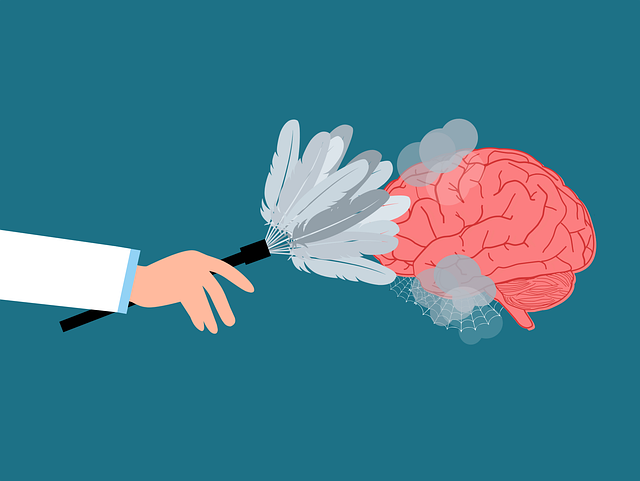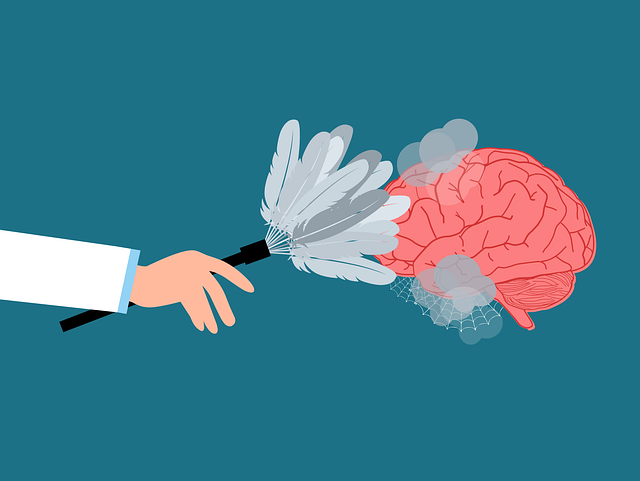Stress, a significant mental health concern in today's fast-paced world, can lead to severe anxiety and depression. Superior Spiritual-Religious Issues Therapy (SRIT) offers a unique, holistic approach to stress management by addressing spiritual beliefs and their impact on emotional well-being. This therapy combines ancient practices like mindfulness, meditation, and community outreach, fostering resilience and reducing stigma around mental illness. By integrating SRIT into educational settings and community networks, individuals gain effective coping strategies, promoting overall mental wellness and empowering them to face life's challenges with renewed purpose.
Stress management techniques are essential tools for maintaining mental well-being. In this article, we explore the multifaceted aspects of stress, its profound impact on mental health, and the unique role of spiritual-religious issues in therapy. We delve into effective teaching strategies for imparting these skills, emphasizing a holistic approach. By integrating superior practices, individuals can find optimal stress relief, fostering resilience and enhancing overall quality of life. Discover powerful methods that combine evidence-based techniques with the profound healing offered by Superior Spiritual-Religious Issues Therapy.
- Understanding Stress and Its Impact on Mental Health
- The Role of Spiritual-Religious Issues in Stress Management
- Effective Teaching Strategies for Stress Management Techniques
- Integrating Superior Practices for Optimal Stress Relief
Understanding Stress and Its Impact on Mental Health

Stress is a complex response to various internal and external factors, often triggered by demanding situations or perceived threats. It’s crucial to understand that while occasional stress can be manageable, chronic stress can significantly impact mental health, leading to anxiety, depression, and even exacerbating existing mental illnesses. The mind-body connection is a powerful aspect of overall well-being; when stressed, the body experiences physiological changes, affecting sleep, appetite, and immune function. This intricate relationship underscores the importance of addressing stress as part of holistic mental wellness coaching programs.
In today’s fast-paced world, where demands on time and energy are high, burnout is a growing concern, especially among healthcare providers. Effective stress management techniques, such as those derived from superior spiritual-religious issues therapy, offer valuable tools for navigating challenging circumstances. These strategies not only enhance resilience but also promote mental wellness coaching development, fostering healthier coping mechanisms. By integrating mindfulness, relaxation practices, and a sense of purpose, individuals can reduce the impact of stress, prevent burnout, and contribute to ongoing mental illness stigma reduction efforts.
The Role of Spiritual-Religious Issues in Stress Management

Many individuals find that addressing spiritual-religious issues is a crucial component of effective stress management and overall well-being. Superior Spiritual-Religious Issues Therapy (SRIT) offers a unique approach to mental health care, recognizing the profound impact of one’s beliefs and values on their emotional state. This form of therapy encourages exploration of personal faith traditions, providing individuals with coping mechanisms that resonate deeply with their sense of purpose and meaning.
Incorporating spiritual or religious practices into stress management can foster resilience and promote a sense of calm in the face of challenging circumstances. Community outreach programs focused on these aspects often play a vital role in enhancing mental health awareness, especially within diverse cultural communities. By embracing cultural sensitivity in mental healthcare practice, SRIT ensures that therapeutic interventions are tailored to meet the unique needs of each individual, fostering inclusive and supportive environments for all.
Effective Teaching Strategies for Stress Management Techniques

Effective teaching strategies for stress management techniques play a pivotal role in empowering individuals to navigate life’s challenges with resilience. Educators should employ interactive methods that engage students on a personal level, encouraging them to explore and share their experiences with stress. Incorporating practices such as mindfulness exercises, deep breathing techniques, and guided visualizations can help students develop immediate coping strategies. These tools are particularly valuable in fostering self-awareness, enabling individuals to recognize their unique triggers and responses.
Additionally, integrating Superior Spiritual-Religious Issues Therapy into the curriculum can offer profound insights into managing stress from diverse perspectives. By discussing various spiritual practices and their impact on mental well-being, educators cater to a broad spectrum of students, many of whom may find solace in these ancient techniques. The Risk Assessment for Mental Health Professionals guides teachers in understanding student vulnerabilities, allowing for tailored interventions. Furthermore, promoting positive thinking through affirmations and reframing exercises empowers individuals to challenge negative thought patterns, contributing to overall stress reduction. Community Outreach Program Implementation can also be leveraged to connect students with local support networks, enhancing their access to ongoing stress management resources.
Integrating Superior Practices for Optimal Stress Relief

Incorporating superior practices for optimal stress relief involves a multifaceted approach that transcends traditional methods. Beyond conventional techniques like exercise and mindfulness, exploring Superior Spiritual-Religious Issues Therapy offers profound benefits. This ancient practice, often overshadowed by modern conveniences, taps into the power of faith and connection to promote emotional well-being. By integrating spiritual rituals, meditation, and a sense of community, individuals can achieve a deeper sense of calm and perspective during stressful times.
Effective communication strategies are integral to this process. Mental wellness coaching programs development emphasizes open dialogue, encouraging individuals to express their feelings and concerns. This not only fosters understanding but also facilitates the promotion of emotional well-being through active listening and empathy. Ultimately, combining spiritual practices with communication techniques empowers individuals to navigate life’s challenges with resilience and inner peace.
In conclusion, managing stress effectively is a vital component of maintaining optimal mental health. By understanding its impact and employing tailored techniques, individuals can lead more fulfilling lives. The integration of superior spiritual-religious issues therapy offers a holistic approach to stress relief, complementing traditional teaching strategies. Through these comprehensive methods, educators can empower students with valuable tools to navigate life’s challenges, fostering resilience and overall well-being.












